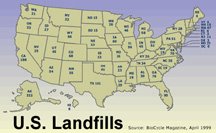United States Ceramic Tile wants to join East Sparta
By Malcolm Hall
The Canton Repository
EAST SPARTA - This village stands to nearly double in size with the proposed annexation of the 761.8-acre United States Ceramic Tile property from Pike Township.
A petition to have the site annexed into East Sparta was filed Tuesday with Stark County commissioners. The company is seeking annexation to East Sparta to maintain the property as industrial — contrary to what township officials want.
“They approached the village,” Mayor Jacqueline Truax said. “It was their decision. They came to the village and asked if we would be willing to annex them. And we said we would.”...Read more.
The Canton Repository
EAST SPARTA - This village stands to nearly double in size with the proposed annexation of the 761.8-acre United States Ceramic Tile property from Pike Township.
A petition to have the site annexed into East Sparta was filed Tuesday with Stark County commissioners. The company is seeking annexation to East Sparta to maintain the property as industrial — contrary to what township officials want.
“They approached the village,” Mayor Jacqueline Truax said. “It was their decision. They came to the village and asked if we would be willing to annex them. And we said we would.”...Read more.













